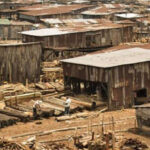The AIDS Healthcare Foundation (AHF) Nigeria has raised concerns over limited access to menstrual hygiene, emphasizing the need to tackle stigma, cultural taboos, and inadequate menstrual health resources that undermine the dignity and well-being of women and girls.
According to Dr. Echey Ijezie, AHF Nigeria Country Program Director, “AHF Nigeria is committed to ending period poverty in Nigeria through consistent investment in initiatives that bridge the knowledge gap in menstrual health management among young women and girls, and by combating the myths, stigma, and cultural taboos that threaten their well-being.”
The lack of access to sanitary pads has severe consequences, including forcing many girls to miss school, increasing the likelihood of dropping out, and heightening the risk of transactional or intergenerational sex. This, in turn, reduces their ability to negotiate safer sex and increases the risk of acquiring HIV.
To commemorate Menstrual Health Day on May 28, 2025, AHF Nigeria will host events at WAPI Secondary School in Calabar, Cross River State, and in the Karinmajigi community in Abuja. The organization will empower young women and girls with accurate information and knowledge to ensure a safe menstrual experience, while also distributing free sanitary pads—both disposable and reusable—in Calabar, Abuja, and Makurdi.
ALSO READ: Lagos govt relocates Okobaba sawmill
Dr. Ijezie emphasized the need for government support, stating, “We will continue to expand access to accurate information and provide free sanitary pads to complement the efforts of other concerned stakeholders. We call on the government to invest in making free sanitary pads available to young girls across Nigeria, especially to indigent girls who currently lack access.”
Globally, nearly 2 billion people menstruate, yet 500 million experience period poverty, which includes a lack of access to menstrual health products, safe and clean facilities, and supportive communities. These barriers can lead to poor health outcomes, school or work absenteeism, and negative impacts on mental health.
Dr. Ijezie called on all stakeholders to join the movement, saying, “This Menstrual Health Day, let’s fight period poverty and end the stigma.”
AHF is the largest global AIDS organization, currently providing medical care and services to over 2.2 million clients in 48 countries worldwide.
WATCH TOP VIDEOS FROM NIGERIAN TRIBUNE TV
- Let’s Talk About SELF-AWARENESS
- Is Your Confidence Mistaken for Pride? Let’s talk about it
- Is Etiquette About Perfection…Or Just Not Being Rude?
- Top Psychologist Reveal 3 Signs You’re Struggling With Imposter Syndrome
- Do You Pick Up Work-Related Calls at Midnight or Never? Let’s Talk About Boundaries







